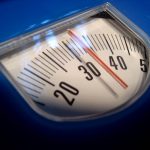General

Rumination disorder is an eating disorder in which a person brings back up partially digested food, re-chews it and spits it out. This disorder generally occurs in infants and children. To be considered a disorder, this behavior must occur on a regular basis for at least one month. Symptoms Symptoms of rumination disorder often include …
Read More

Body dysmorphic disorder, or BDD, is a mental illness with features of an eating disorder and obsessive-compulsive disorder. As with an eating disorder, BDD involves a concern with body image. A person with BDD is often more concerned with a specific body part rather than the general weight or shape of their body. Generally, this …
Read More

What is an eating disorder? An eating disorder can be a group of serious conditions in which a person is obsessed with food and weight. They’re thoughts are often occupied by little else. Some types of eating disorders include anorexia nervosa, bulimia nervosa and binge-eating disorder. At their most severe, eating disorders can be life-threatening. …
Read More

About 20 million women and 10 million men will suffer from an eating disorder in their lifetime, according to the National Eating Disorder Association (NEDA). The three most common types of eating disorders include anorexia, bulimia and binge eating disorder. Not only can these eating disorders cause many severe medical issues, these illnesses can cause …
Read More

Losing weight very quickly is common for many people with various types of eating disorders, but rapid weight loss is rarely without risks or health complications. According to Dr. Donald Hensrud, editor in chief for “The Mayo Clinic Diet,” a weight loss of 1-2 pounds per week is generally considered a safe amount – especially …
Read More

Under-eating can occur in many forms. Some of these include restraining food intake to keep weight under control and eliminating specific food groups from a diet for fear of putting on weight. There are a number of negative effects associated with this eating disorder. Emotional Effects of Under-Eating Depression is one of the most common …
Read More

We often hear of the dangers associated with obesity, but rarely with being underweight. Though thin is in vogue, being underweight can put a person at greater risk for a number of diseases and conditions. Health Risks of Being Underweight Being underweight can cause a number of health risks, including: Issues with fertility. Both women …
Read More

While exercising can certainly aid in weight loss, limiting calorie intake is one of the most helpful ways to lose weight. If exercise is not possible, dieting over a longer of period of time may be an option. As always, you should consult a doctor before making a weight-loss plan. Cutting Calories One pound of …
Read More

In June 2011, the United States Department of Agriculture (USDA), in conjunction with First Lady Michelle Obama, launched a new generation version of daily food guidelines called MyPlate, which was designed to prompt consumers to think about building a healthy plate of food at mealtime. MyPlate, which emphasizes the fruit, vegetable, grains, protein and dairy …
Read More

Although it may appear that a person eats well, they may be suffering from orthorexia nervosa, a commonly overlooked eating disorder in which someone fixates on “righteous eating” or eating pure foods. Defining Orthorexia A person who suffers from orthorexia often begins to eat well with good intentions, but then becomes obsessed with food quality …
Read More
 Eating Disorder Self Test. Take the EAT-26 self test to see if you might have eating disorder symptoms that might require professional evaluation. All answers are confidential.
Eating Disorder Self Test. Take the EAT-26 self test to see if you might have eating disorder symptoms that might require professional evaluation. All answers are confidential.
Find a Treatment Facility Near You
Click on a state below to find eating disorder treatment options that could be right for you.










 Eating Disorder Self Test. Take the EAT-26 self test to see if you might have eating disorder symptoms that might require professional evaluation. All answers are confidential.
Eating Disorder Self Test. Take the EAT-26 self test to see if you might have eating disorder symptoms that might require professional evaluation. All answers are confidential.